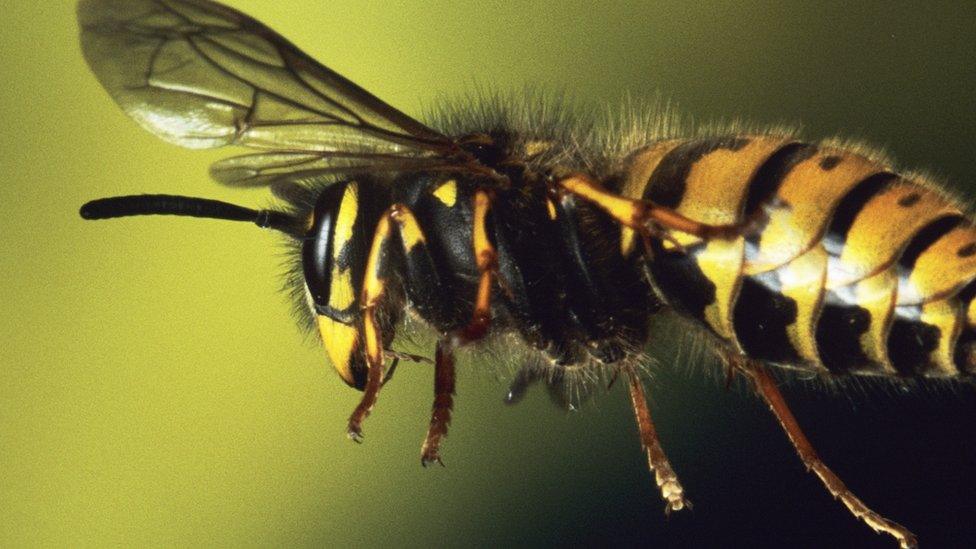Wasps don't get enough credit for their work!
- Published

We might hate wasps ruining our picnics and BBQs but are they getting a raw deal?
Well, now scientists are saying they have an important role which needs to be better recognised.
According to new research wasps are expert pollinators - they visit 960 plant species, helping to spread the plant's populations.
Wasps also help make sure that creatures that can damage crops, like aphids and caterpillars, don't increase too much in number.
Prof Seirian Sumner, from University College London, and her team studied wasps and looked at how thousands of species of the creature benefit the environment, human's health and society.
Prof Sumner said: "Wasps are one of those insects we love to hate - and yet bees, which also sting, are prized for pollinating our crops and making honey.
She said that wasps aren't studied as much as other insects like bees and that's why we're only starting to learn more about them now.
Wasps could be just as valuable as other beloved insects like bees, if only we gave them more of a chance.
The researchers say that wasps could be used as pest control in poorer countries where farmers could bring in local wasp species to help them look after their crops with little risk to the natural environment.
Wasps also could be used as a food source and and help to treat illnesses.
The largest wasps grow to up to 5cm long
Wasps are related to bees but also to ants
A female wasp can sting several times unlike a bee which can only sting once
They live on every continent but Antarctica
Not all wasps are black and yellow, in fact they come in many different colours
- Published16 February 2021
- Published18 February 2021
- Published22 May 2020
